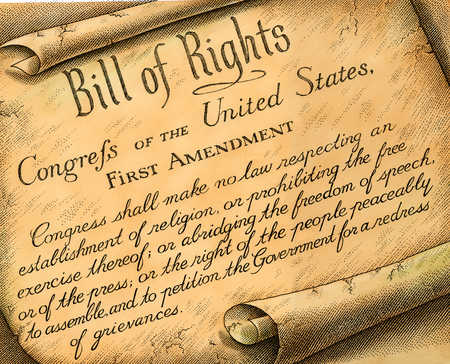US: First Amendment & Federal Elections – by Derwood S. Chase, Jr.
 Dear Editor,
Dear Editor,I write in regard to your June 4th story “Council OKs Resolution Against Citizens United Ruling” in which the U.S. Supreme Court found that the First Amendment prohibits the federal government from restricting independent political advertising paid for by corporations or labor unions.
Right now the United States Congress is considering 16 amendments to overturn Citizens United. Most of them give Congress unlimited power to control spending by anyone – individuals, businesses, unions or groups – on federal elections. Two of the amendments even propose prohibiting private spending on elections.
Some people say “money isn’t speech,” but they are wrong. In our society, you have to spend money to speak out on politics. If Congress can stop anyone from spending money on speech, they can effectively stop the speech itself. That’s why many of these noxious amendments carve out an exemption for freedom of the press which spends money on speech every day. You cannot be for freedom of speech and also favor these amendments.
If an amendment passes, Congress will use its new power to limit spending on elections by everyone. You might think: great, less money makes for better elections. Wrong again. John Coleman of the University of Wisconsin at Madison found that the more money spent during an election, the more informed voters were when casting their ballots. He also found that those who were the least informed at the start of a campaign gained the most from the spending.
Political scientists of all political stripes have long found that spending limits favor incumbents who already have name recognition and other advantages. With Congressional approval reaching new lows it seems particularly untimely to lock in the status quo.
The U.S. Government has more than 320 departments and agencies at the federal level that publish more than 70,000 pages of new regulations every year. Most voters have no knowledge of government regulations. The cost of compliance which directly affects jobs and consumer prices was estimated to be $1.75 trillion in 2008 (exceeding total corporate profits of $1.46 trillion) or $10,585 per employee for small firms and $7,755 for large firms (See “The Impact of Regulatory Costs on Small Firms” by Mark and Nicole Crain, Sept. 2010). With perhaps 100 million employees and many more people as consumers affected by the costs and competitiveness of the products and services produced by our 6.2 million corporations, it seems particularly desirable to have corporate entities participating in the political process. Without their perspective more decisions would be made out of ignorance and the often unintended consequences could be much worse.
* This letter was sent to the editor of The Daily Progress in Charlottesville, Virginia and it was not published because it exceeds their word limits.
No comments:
Post a Comment